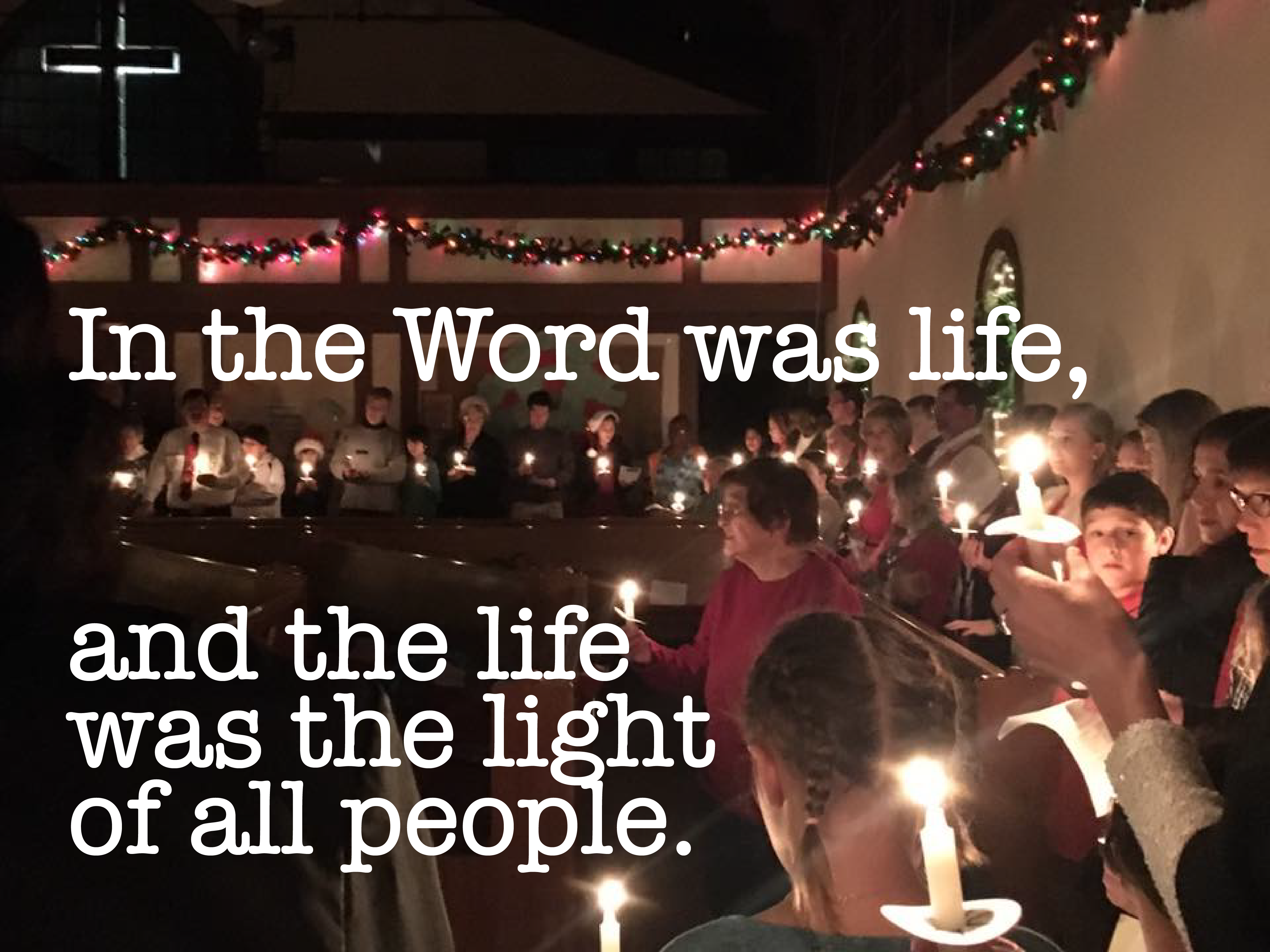
This week we again read a soaring piece of prophetic poetry, this time from the gospel of John. The prologue (chapter 1) is unique, and believed to be an early Christian hymn, most likely sung and used among the circles influenced by the apostle John. It would have been adapted to serve as an overture to the gospel narrative of the life of Jesus.
The reading is filled with connections to the First Testament as well as Greek Philosophy (the larger world in that day). It begins with the words “in the beginning.” In Hebrew that phrase is one word “bereshit” – which we translate as Genesis. It undoubtedly points back to the story of creation, preparing the way in which to understand Jesus as pre-existent to creation, alongside and with God. Other connections with Hebrew thought and the Hebrew Bible include direct ones to Moses, as well as the phrasing of verse 14 “And the Word became flesh and lived among us,” The word for that phrase can be translated as “set up a tent,” or “tabernacled”; the exact Greek word used to translate the word to describe the Tent of Meeting (Tabernacle) around which the Israelites always set up their camp in the desert. It was the precursor to the Temple, the space and place in which they believed God lived among them. Jesus’ presence in the world is equated with that of God in the Tabernacle.
The text also has deep connections with Greek philosophy (the major worldview of the 1st century). In Greek the word for “word” is Logos, meaning “word,” “reason,” or “plan.” It is a hugely important word in Greek philosophy and theology. The Greeks used the word to depict the divine reason implicit in the cosmos. The Logos is what orders and gives the universe form and meaning. Here it seems to describe the role of Jesus Christ as the plan of God active in creation, and the continually unfolding structuring of the cosmos. Christ is also the reason for and revelation of the divine plan of salvation to humanity. In all of this the choice of the word Logos points to the basic Christian doctrine of the preexistence of Jesus.
The song sings of the mystery of God, inviting us to connect our own experiences of God with and among us with Jesus as the Word of God with and among the world. It’s paints a portrait of the connectional way in which all things – and we – are made; and in which God lives, acts and loves.
Questions for the practice of Examen & Contemplation
- What shimmers for you in this passage?
- What word, phrase or image touches your life today?
- How do you experience Jesus as God tabernacling among us, besides you
- How does this song bring you hope in the season of Advent: the coming of Christ?